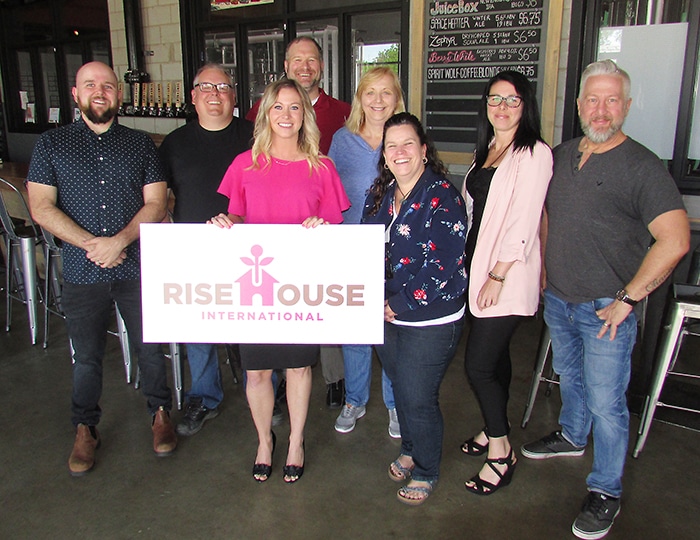
Expanded to help entire families in Haiti
Change has come for the homegrown charity Hime for Help that has spent the past seven years helping children in Haiti.
Charity founder Emily Hime said it has rebranded as RISE House and will expand its focus to help more than just children in the impoverished Caribbean nation.
“I became morally conflicted a few years ago after noticing the orphanage crisis in Haiti. I had realized we were putting a Band-Aid on a much bigger issue – poverty,” she said. “I was seeing families being torn apart. Parents were giving up their children to these orphanages or abandoning them at orphanage doors – not because they don’t love their child, but because they believed that an orphanage would provide their child with a better life.”
To that end, RISE House will seek to have a bigger impact than Hime for Help, which focused on Maison Ke Kontan children’s home. Hime said the plan now is to not only help children, but to empower entire families. In fact, “RISE” stands for Responsible Inspiration to Succeed and Empower.
“We want to provide them the resources they need to care and provide for their children. There are so many talented, dedicated and hard-working people in Haiti that simply just do not have the resources or opportunities to rise above,” she said. “We want to change this. We want to give people the tools they need to succeed by offering training, education, microloans for business start-up costs, teaching about sustainability and agriculture, and providing them a safe place to learn and grow.”
Such growth, Hime said, will help empower people.
“We know we cannot change Haiti as a whole, but if we can work towards changing one life at a time, that is good enough,” she said. “It’s about giving one family an opportunity to rise above their current circumstances and be able to provide for their children.”
The training programs are geared towards entrepreneurship, and will be geared to accommodate those who are illiterate (nearly four in 10 people in Haiti are unable to read or write).
Classes will also be offered in health and nutrition, maternal health and childbirth, as well as sustainability and agriculture.
Hime said it was time for her charity to evolve.
“First of all, I think the organization has grown. I went down to Haiti when I was 19. I have grown as well,” she said. “The organization has become much bigger than myself – it’s time to remove my name from it and to create a more generic and inclusive organization.”
To that end, Maison Ke Kontan will transition to a safe haven for women and children. Hime said the children currently under care at the home will remain with the charity organization.
“But our ultimate goal is to work with some of the children’s extended family and put them through our programming to empower them as well,” she said.
Where possible, they will work towards family reunification, but for orphans with no known family members, Hime said they will remain in the care of RISE House.
For seven years, Hime has been helping children in Haiti. She and her organization have overcome hurdle after hurdle, be it political corruption or sudden lack of housing.
“I have considered throwing in the towel, but you take it a day at a time,” she said. “The political strife, corruption, public anger and distrust all roots back to poverty. Desperate times call for desperate measures and everyone is just trying to survive, so sometimes morals get pushed aside. You have to do what it takes.
“I think sometimes people just need someone to believe in them; to give them a chance. And that’s what we are hoping to do with RISE House.”
Hime offers a friendly warning to people who help her and want to aid first-hand in Haiti.
“Before anyone comes to Haiti, I give them this warning: Your life will be forever wrecked. I don’t mean that in a negative way, but something happens to you when your plane touches down. Your life, your mission, your thought process all change when you give what’s in your hand to someone who can never pay you back,” Hime said.
“When you step outside and face the reality of our world – the harshness, the joys – things you’ve done your entire life just don’t seem fulfilling anymore.”
Hime said it happens to her all the time.
“I can’t even wash a bug off my windshield now without thinking how some of my friends in other parts of the world have to walk six miles for the drinkable water that I am using on an insect,” she said. “It’s not easy living a wrecked life, but it’s a fulfilled one.”





